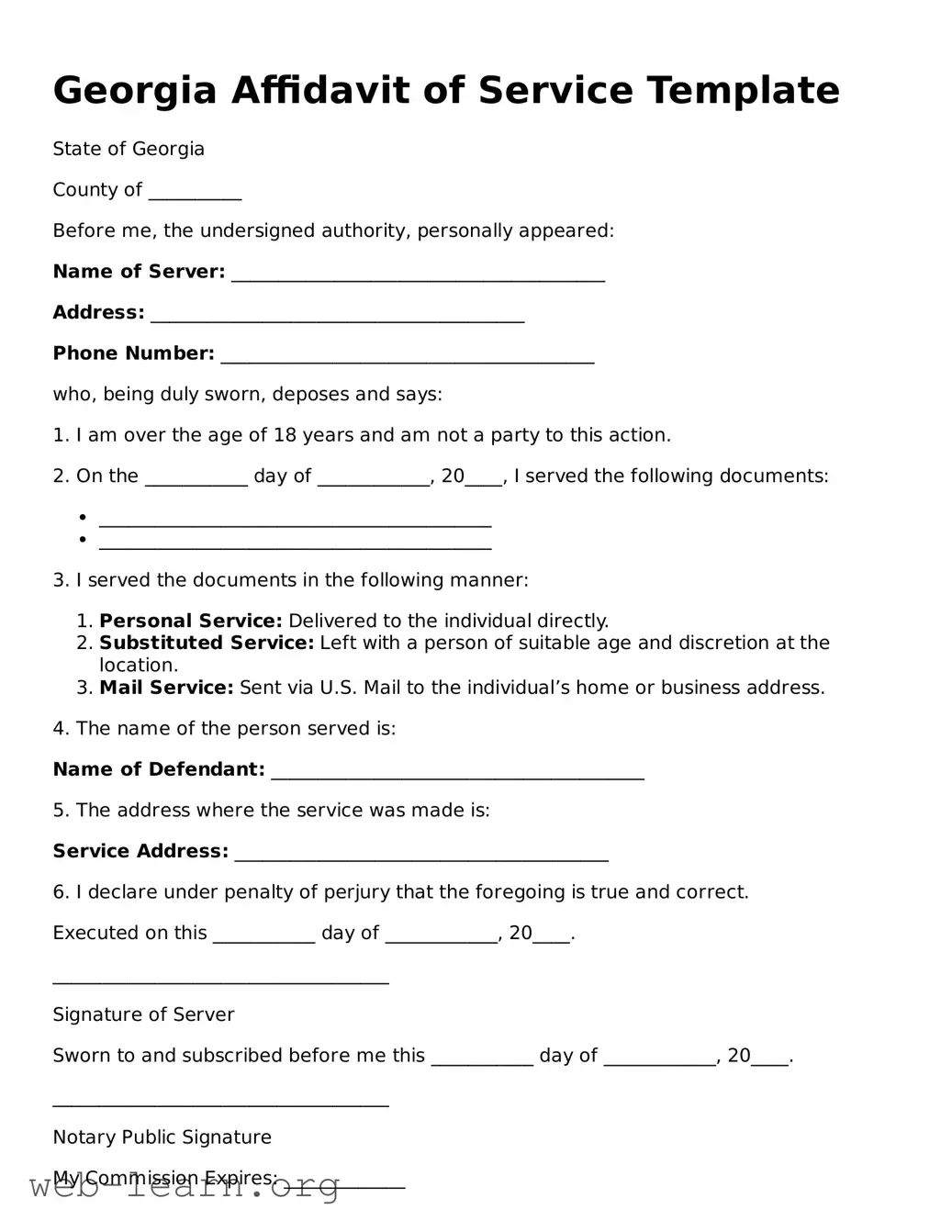Georgia Affidavit of Service Template
State of Georgia
County of __________
Before me, the undersigned authority, personally appeared:
Name of Server: ________________________________________
Address: ________________________________________
Phone Number: ________________________________________
who, being duly sworn, deposes and says:
1. I am over the age of 18 years and am not a party to this action.
2. On the ___________ day of ____________, 20____, I served the following documents:
- __________________________________________
- __________________________________________
3. I served the documents in the following manner:
- Personal Service: Delivered to the individual directly.
- Substituted Service: Left with a person of suitable age and discretion at the location.
- Mail Service: Sent via U.S. Mail to the individual’s home or business address.
4. The name of the person served is:
Name of Defendant: ________________________________________
5. The address where the service was made is:
Service Address: ________________________________________
6. I declare under penalty of perjury that the foregoing is true and correct.
Executed on this ___________ day of ____________, 20____.
____________________________________
Signature of Server
Sworn to and subscribed before me this ___________ day of ____________, 20____.
____________________________________
Notary Public Signature
My Commission Expires: _____________
